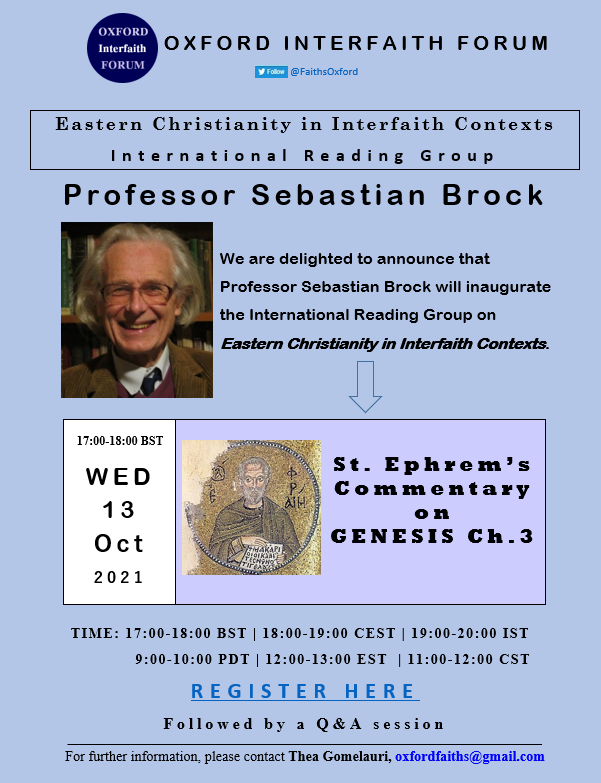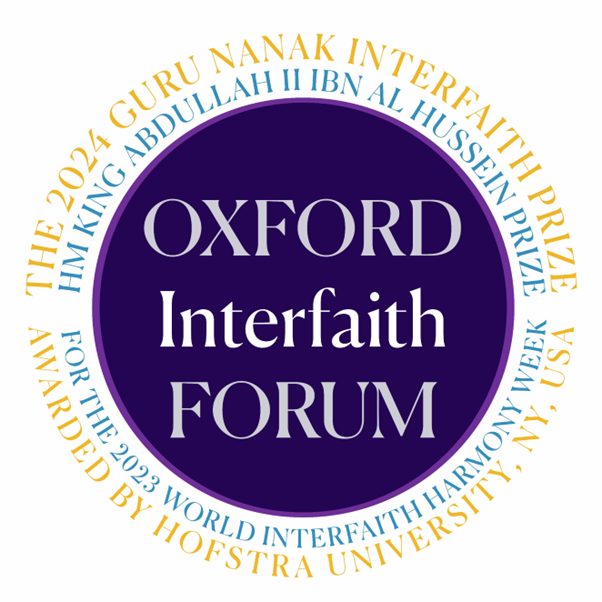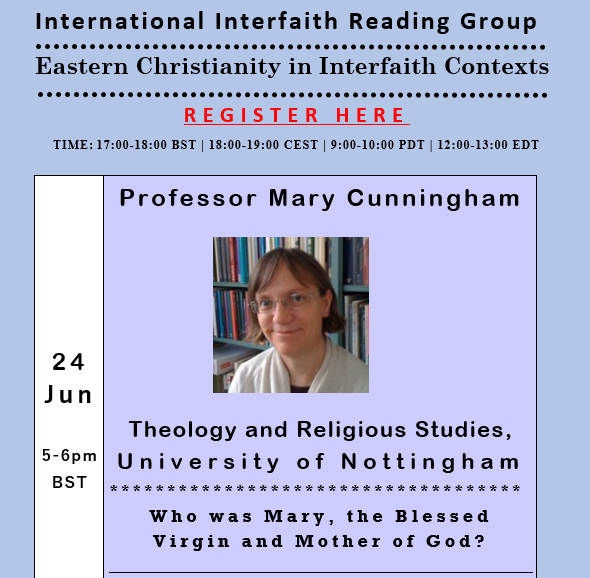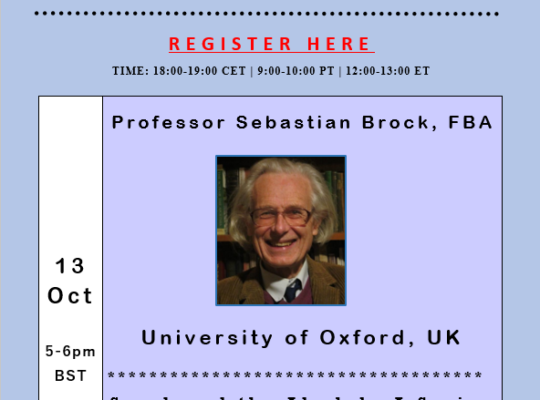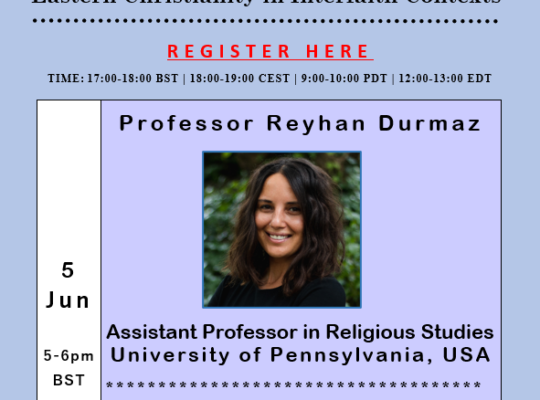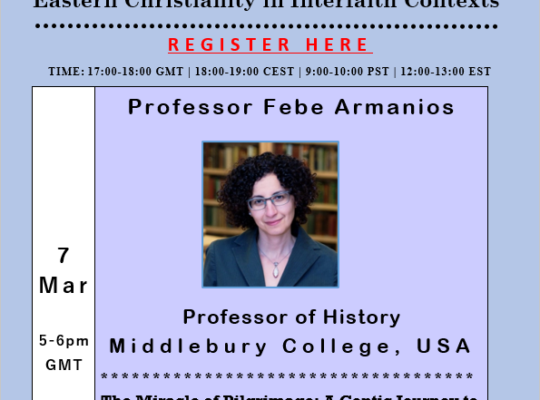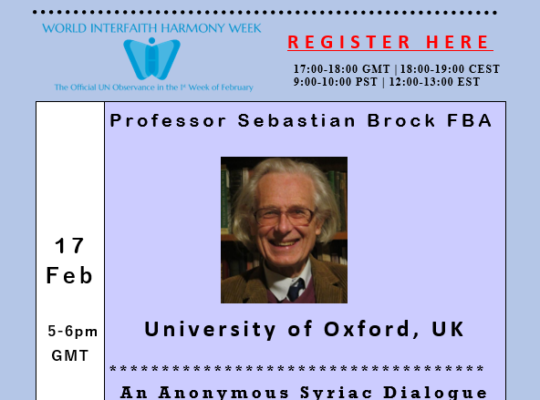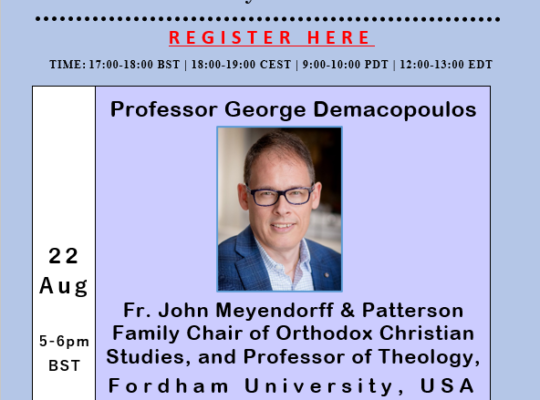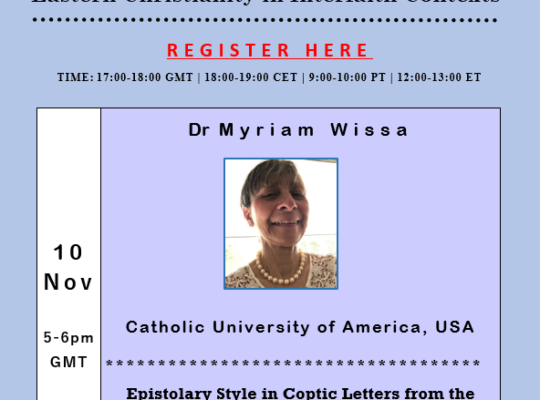24 June, 2024
We are deeply honoured to welcome Professor Mary Cunningham, University of Nottingham, to lead a session of the Eastern Christianity in Interfaith Contexts Reading Group.
Here are the details of this fascinating event.
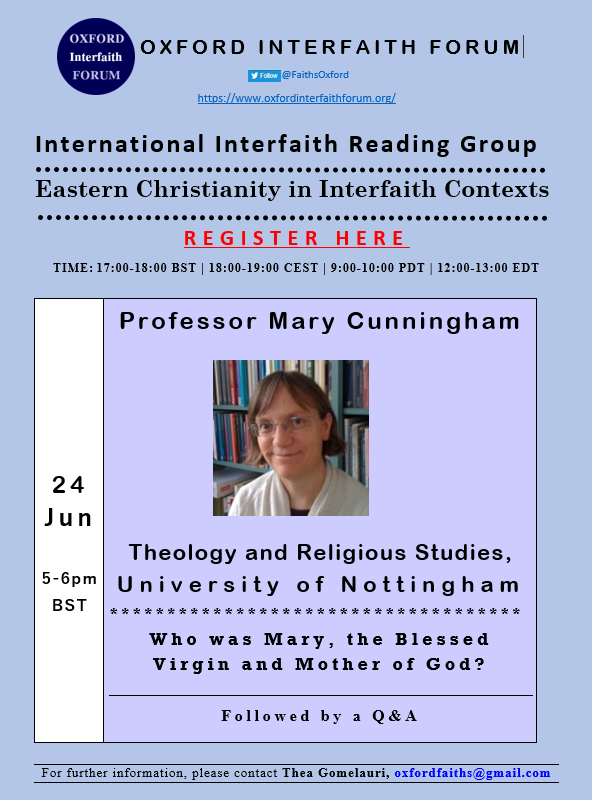
Title: Who was Mary, the Blessed Virgin and Mother of God? A Byzantine hagiographical narrative by the ninth-century Monk Epiphanios
Abstract: Liturgical and theological celebration of Mary, the Theotokos or Mother of God, flourished in Eastern and Western Christendom from about the fourth century onward, often in connection with her important role in the incarnation of Christ. However, narratives about her earthly life and relationship with her divine son were slower to appear. The second-century Protevangelium of James provided an account of the Virgin’s birth and childhood while Syriac texts, which survive in manuscripts dating from the fifth century or later, dealt with her death and assumption into heaven. Building on narratives such as these, the ninth-century Constantinopolitan monk, Epiphanios, constructed a continuous ‘biography’ of the Virgin, covering her conception and birth through her death in Jerusalem. He used various sources, both canonical and apocryphal, but freely changed details in Mary’s story in order to provide a believable historical narrative. I will talk about Epiphanios’s Life, focusing on selected passages that reveal this author’s creative use of literary sources and theological purpose. I will also consider the audience and liturgical context for which his text was intended.
Speaker’s Biography: Mary B. Cunningham is Honorary Associate Professor of Historical Theology at the University of Nottingham. She has devoted much of her research to the literary and theological celebration of the Virgin Mary in Byzantium. Her recent books include The Virgin Mary in Byzantium, c. 400–1000. Hymns, Homilies and Hagiography (Cambridge University Press, 2021) and Epiphanios the Monk, Life of Mary, the Theotokos, and Life and Acts of St Andrew the Apostle. Introduction, Translation, and Commentary, Translated Texts for Byzantinists 13 (Liverpool University Press, 2023).
Chair: Professor Sebastian Brock, FBA, University of Oxford, UK.
Date: 24 June, 2024
Time: 17:00-18:00 BST | 9:00-10:00 PDT | 12:00-13:00 EDT
Venue: online
If you would like to join the Eastern Christianity in Interfaith Contexts Reading Group, please sign up here.
Related Sessions:
- The Peshitta and the Making of the Antioch Bible
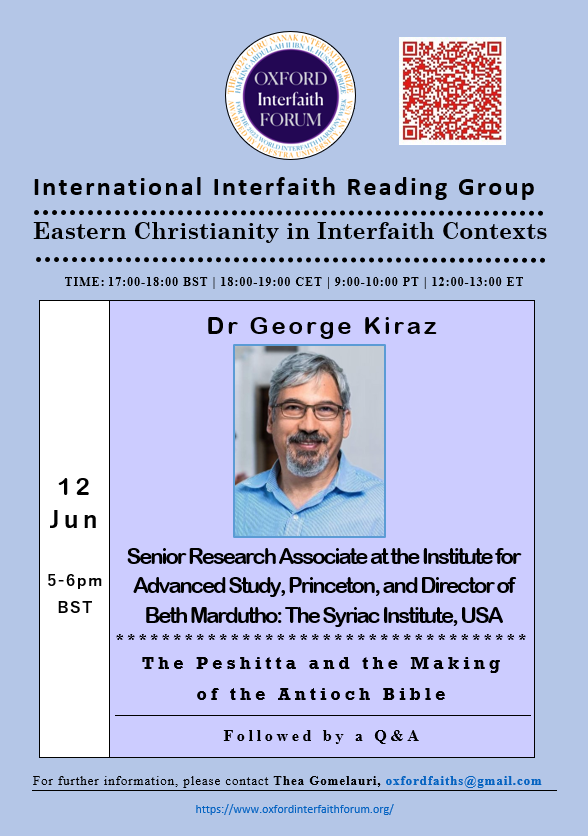
- Narsai’s Memra 49, on Adam and Eve: O Instructive Fault!
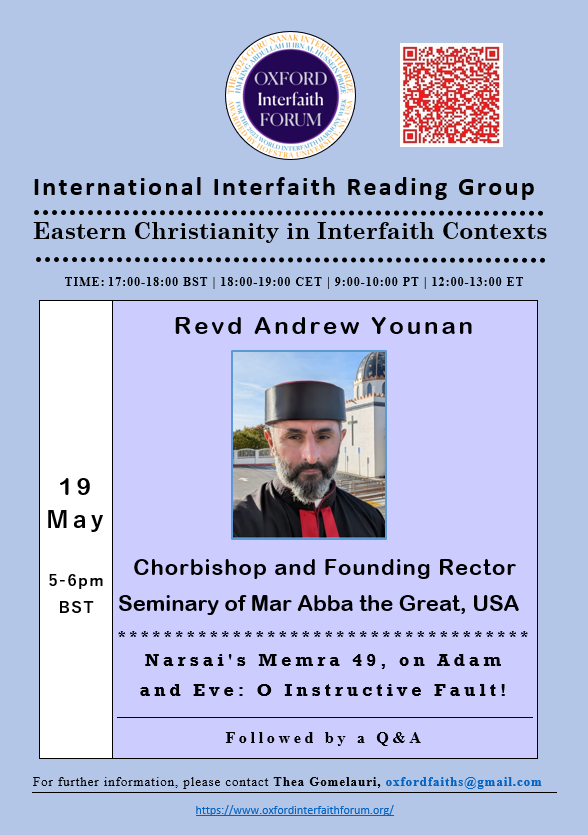
- Basil of Caesarea and Gregory of Nazianzus on the Problem with the Devil
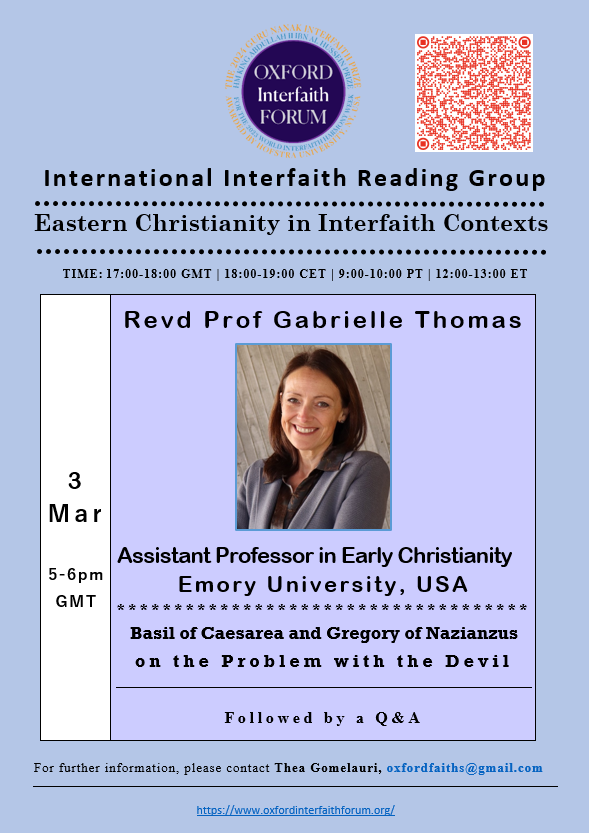
- Byzantine Aristocrat, Monk, Mystic and Dissident: Symeon the New Theologian (949-1022)
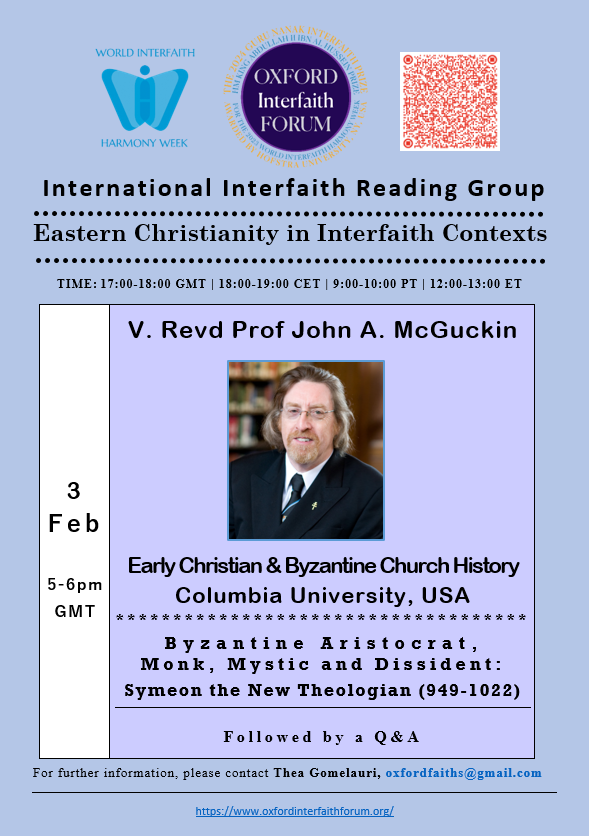
- Heavenly Hours: Creation and Time in the Syriac Testament of Adam
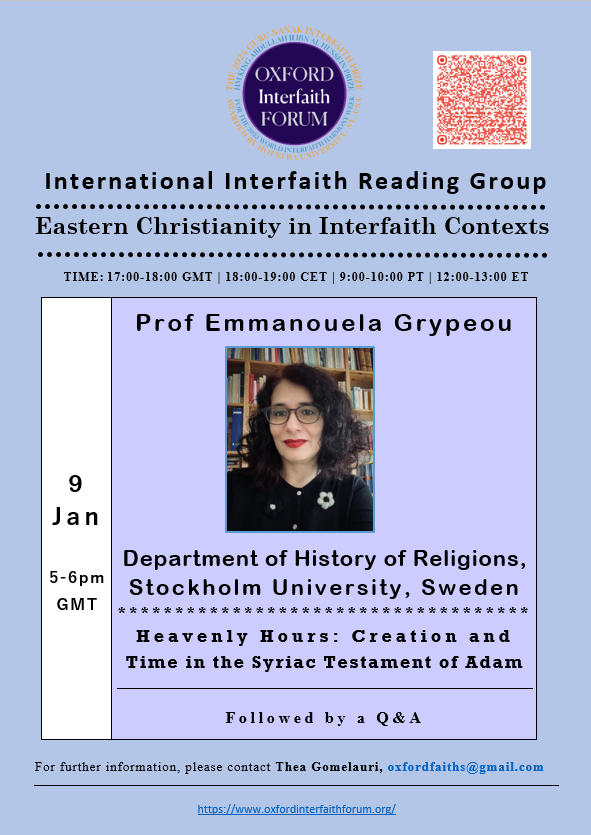
- The Monastic Homilies of Isaac of Antioch
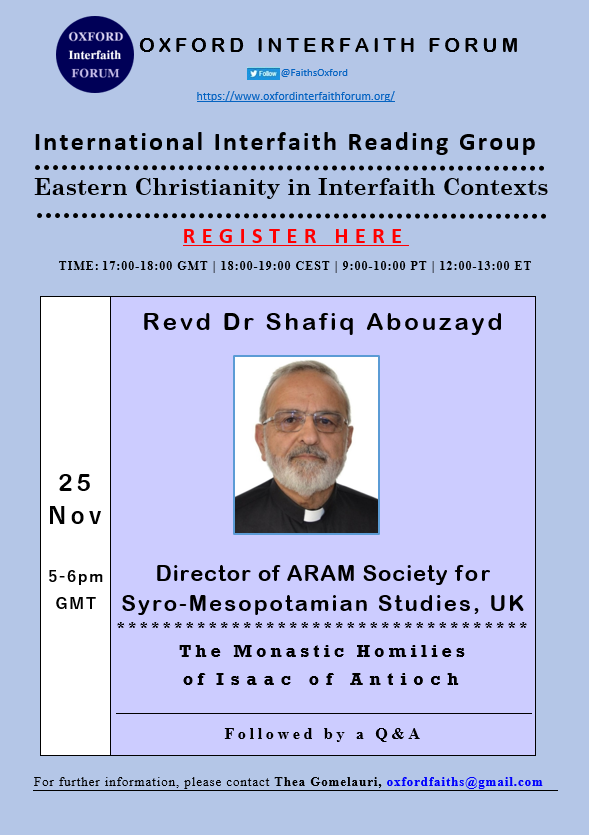
- Christian Trees
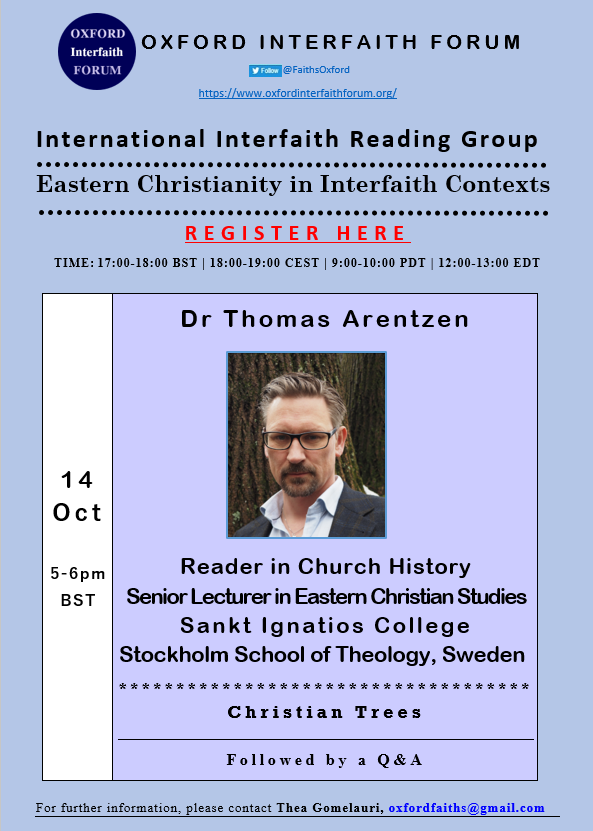
- Dialogue and Fire in a Fragmentary Syriac Martyrdom Narrative
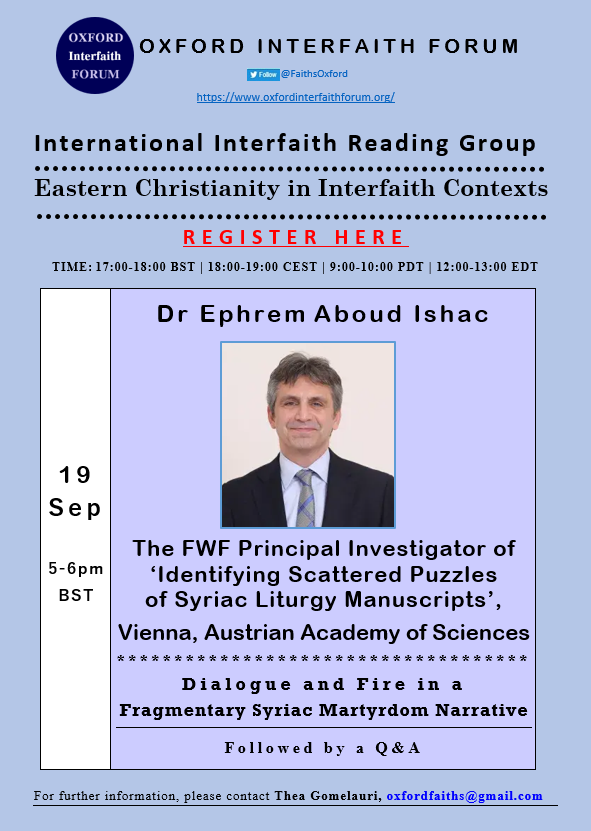
- The Origins of the First Anti-Jewish Good Friday Hymns
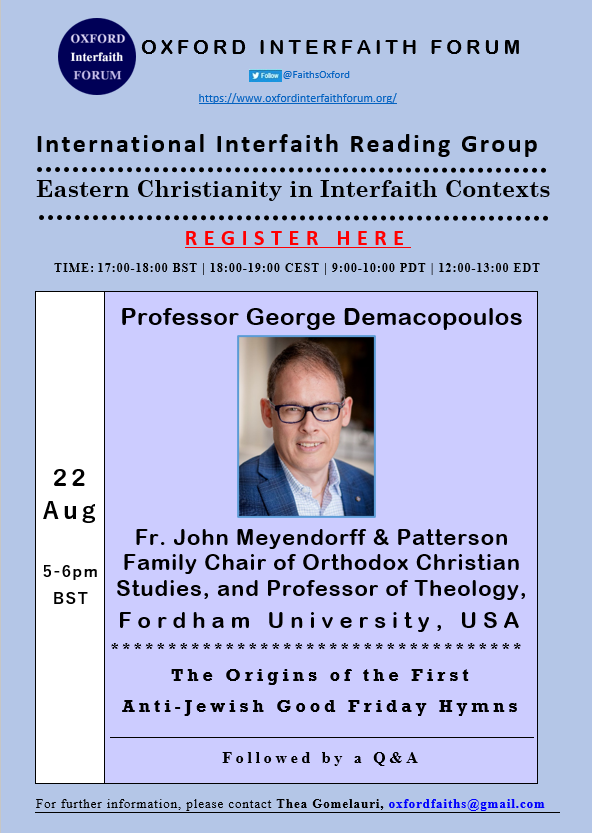
- Finding a Home: The West Syriac Context of the Clementine Epistles on Chastity
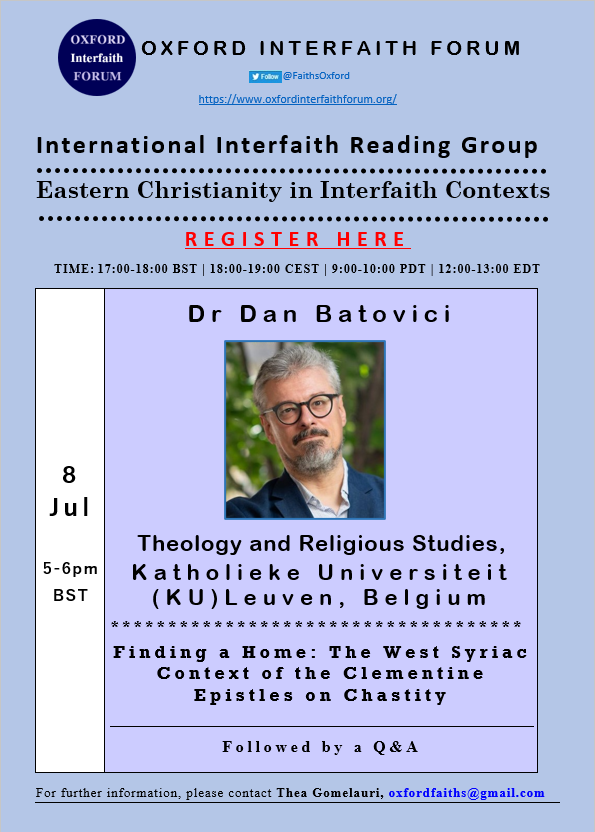
- Who was Mary, the Blessed Virgin and Mother of God? A Byzantine hagiographical narrative by the ninth-century Monk Epiphanios
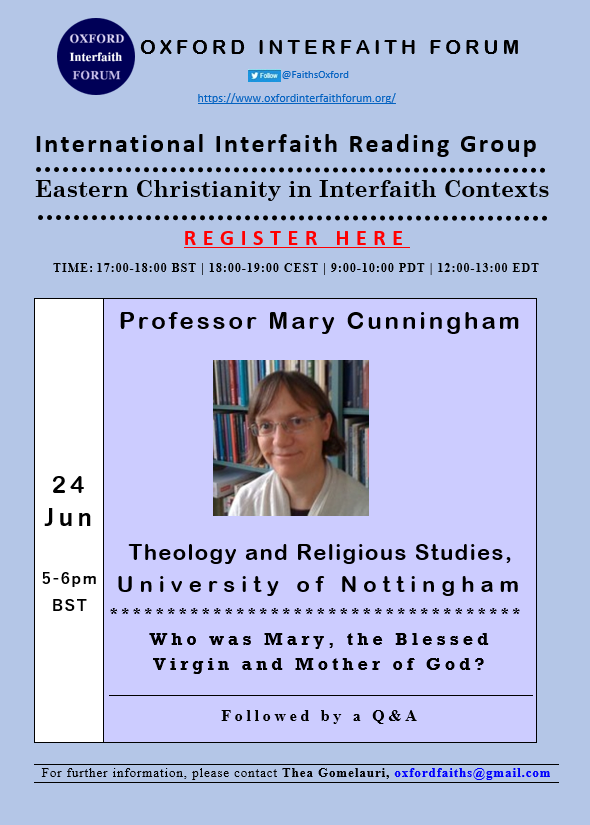
- Nikos Kazantzakis and Orthodox Christianity
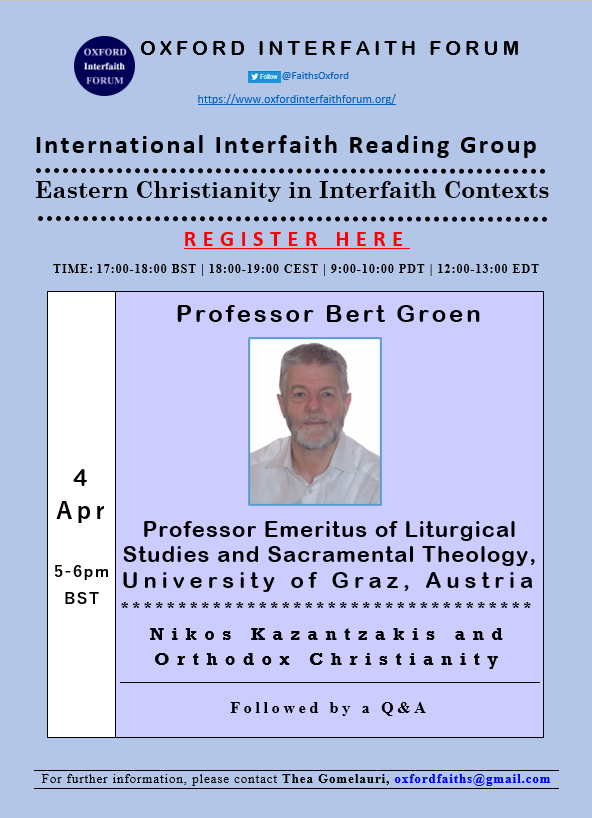
- The Miracle of Pilgrimage: A Coptic Journey to the Holy Land During the Ottoman Period
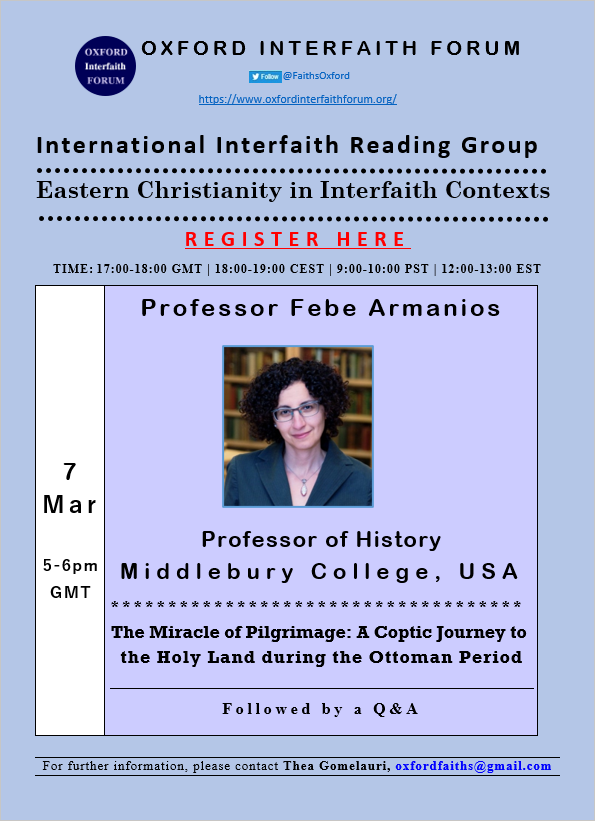
- Setting the Stage: The Rose of Performance in Studying Late Ancient Hymnody
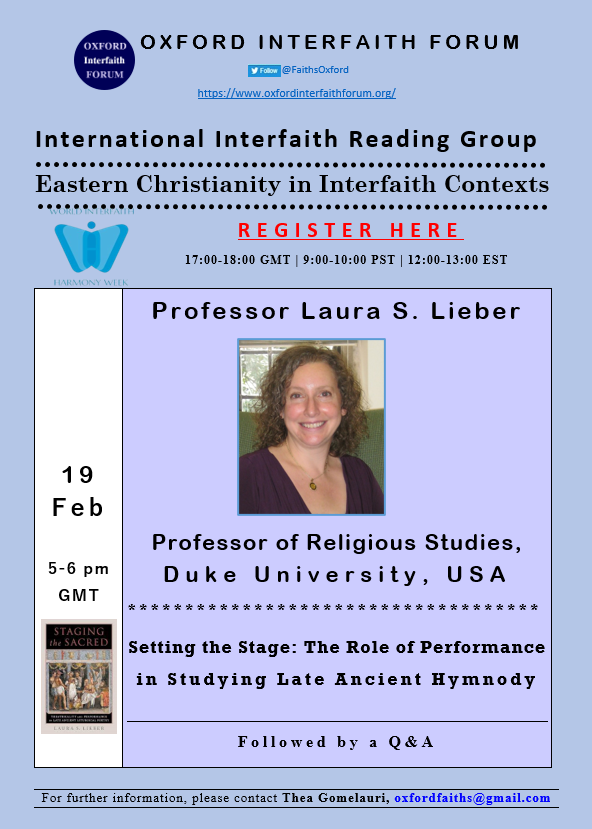
- Ephrem the Syrian and a New Beginning in Syriac Poetry
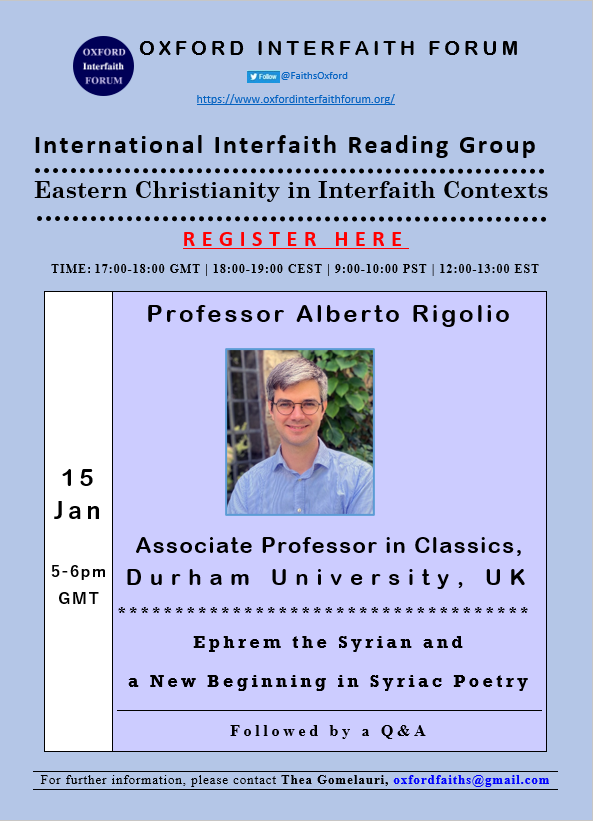
- A Jew Reads the Gospels in Syriac: Azariah de Rossi’s Critique of the Vulgate (1577)
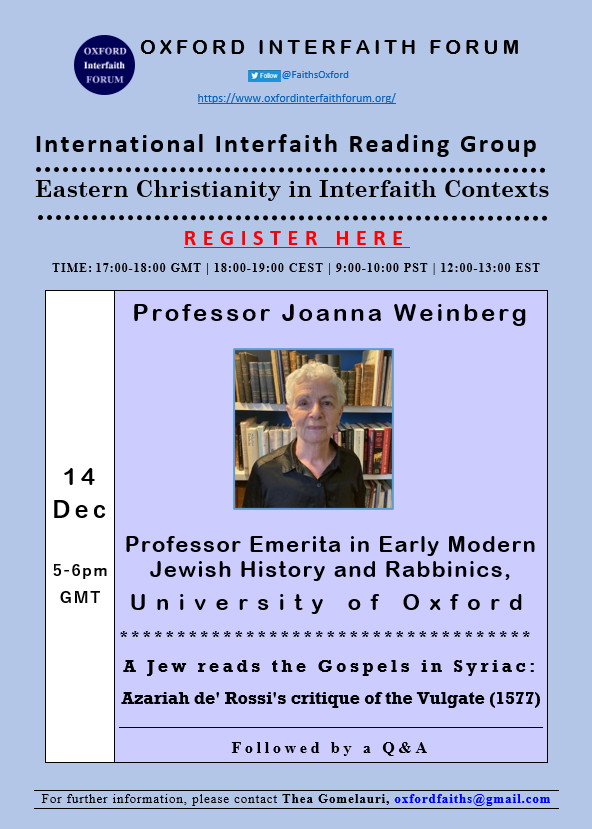
- The Manuscript Project at the Coptic Monastery of St Paul the Hermit at the Red Sea, Egypt
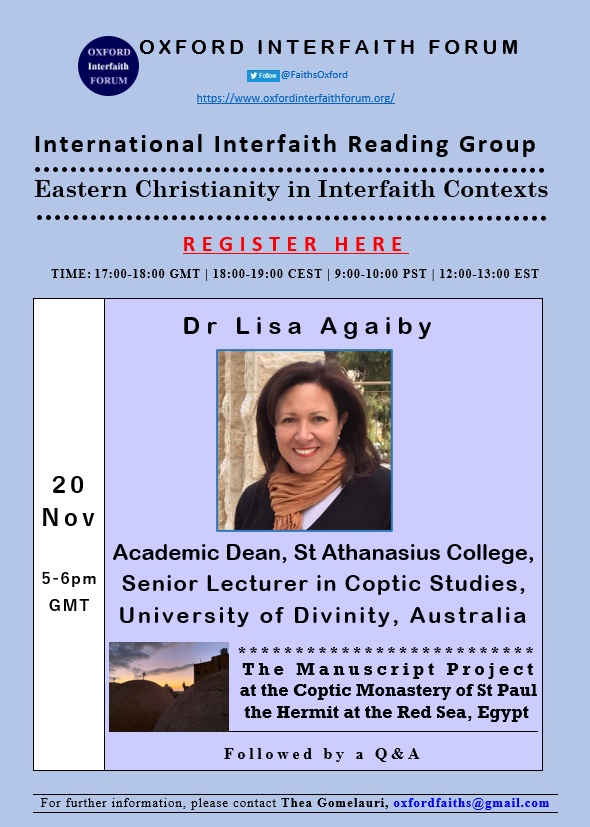
- Mary’s Ordeal: A Syriac Narrative Poem on Many and Joseph
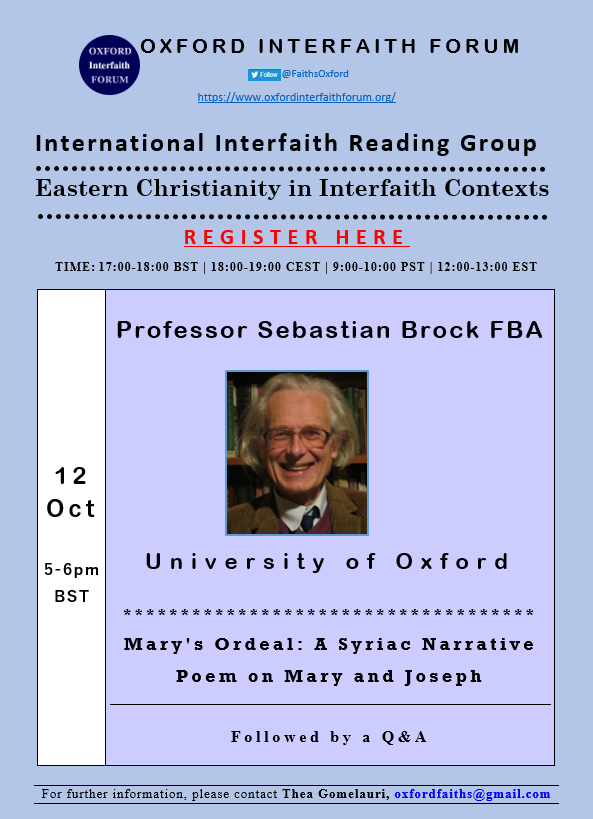
- Resurrection of the Human Body according to John of Dara’s Mimro I:4
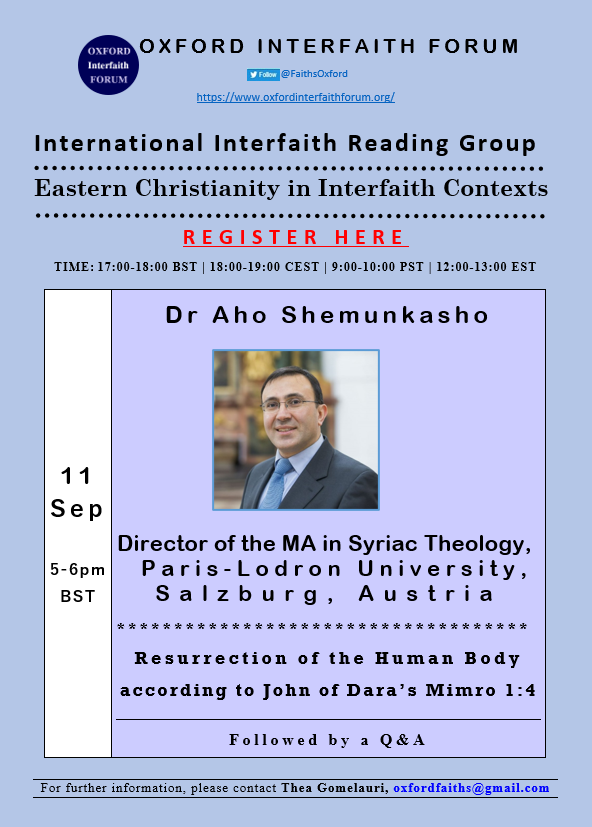
- Gregory of Nyssa: On the Human Image of God
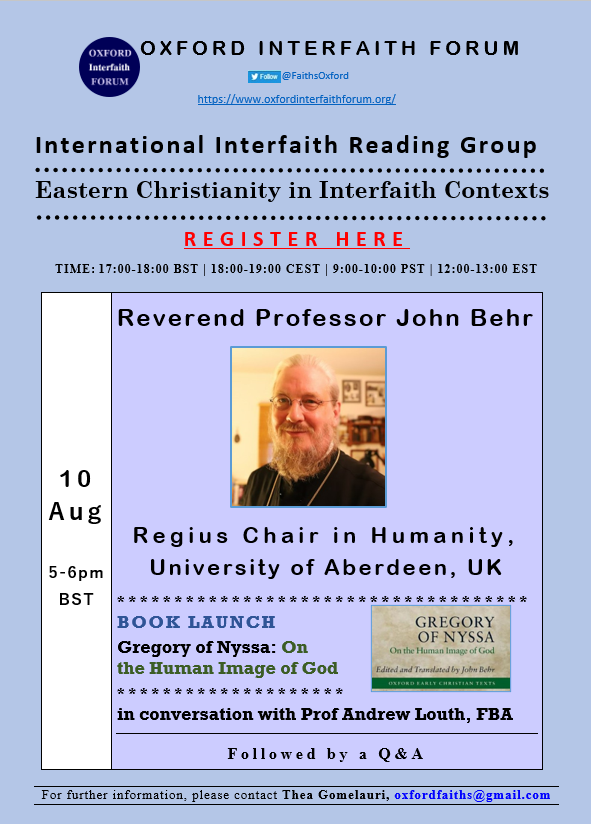
- ‘Conception by ear’ and Redemption of the Human Sensorium in Ephrem’s Thirty-fifth Madrasha on the Church
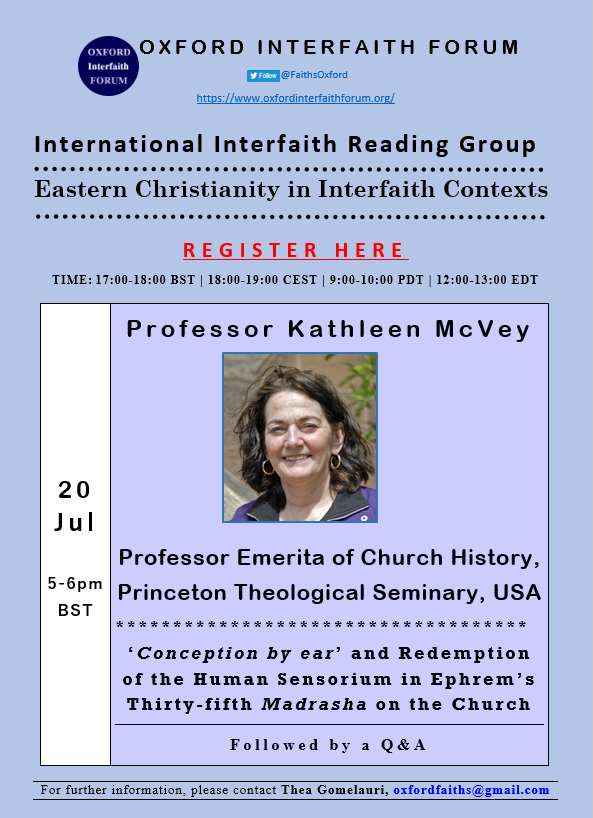
- From Edessa to South Arabia and Back: The Syriac Story of Bishop Paul and Priest John and Models of Sanctity in the Medieval Middle East
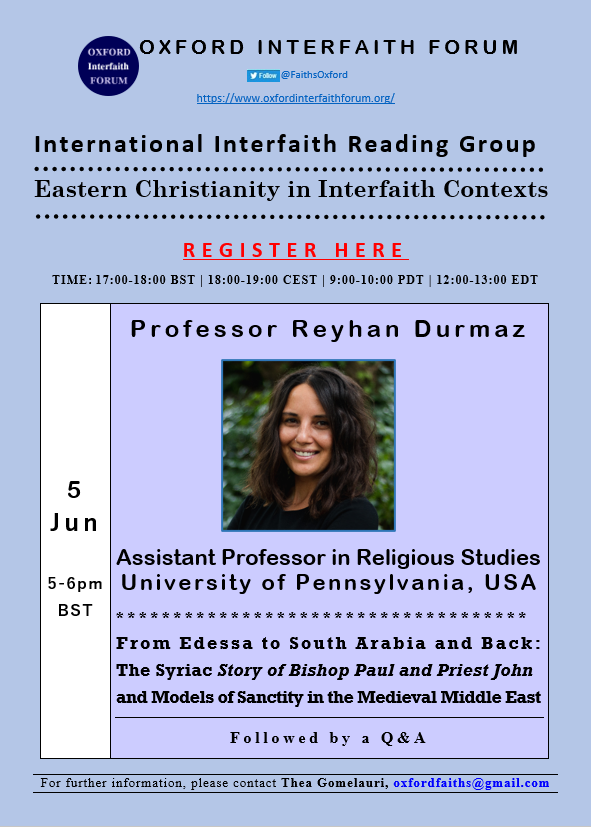
- Wrestling with Calculating-Thoughts: Mental Training according to Evagrius of Pontus
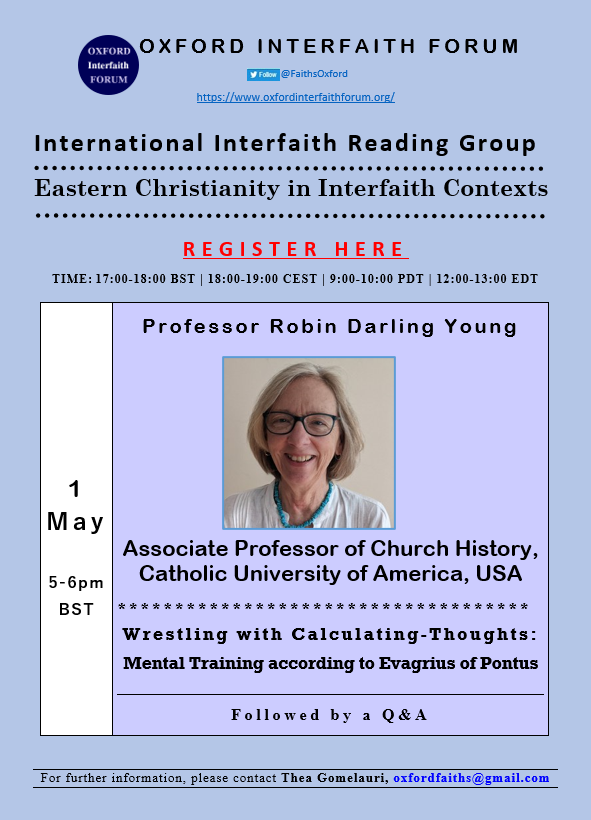
- Returning the Ticket: God and Evil in the Brothers Karamazov
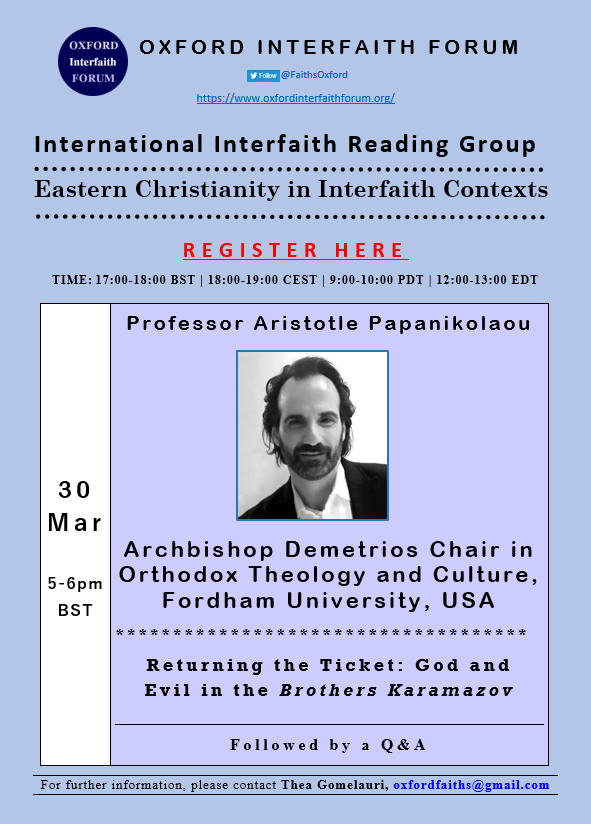
- Ecumenical Patriarch Athenagoras: an Orthodox Dialogue with Islam
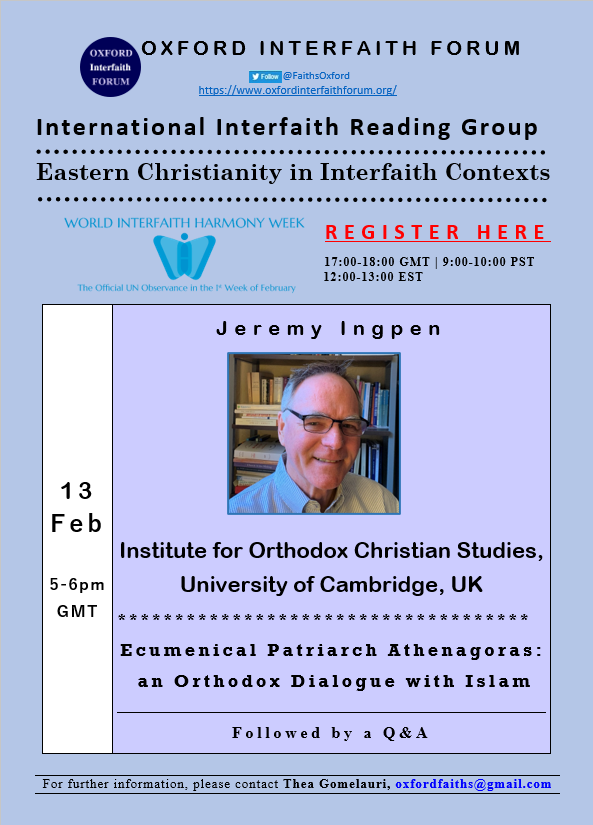
- Matta el-Meskin/Matthew the Poor: a ‘Contemporary Desert Father’ on Christian Unity
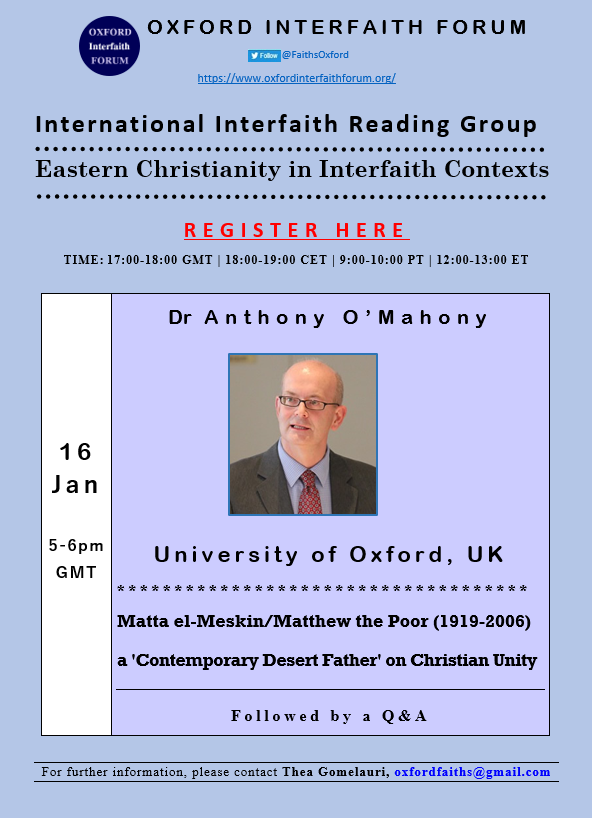
- Signs of Miraculousness: The Inimitability of Jacob of Serugh’s Teaching
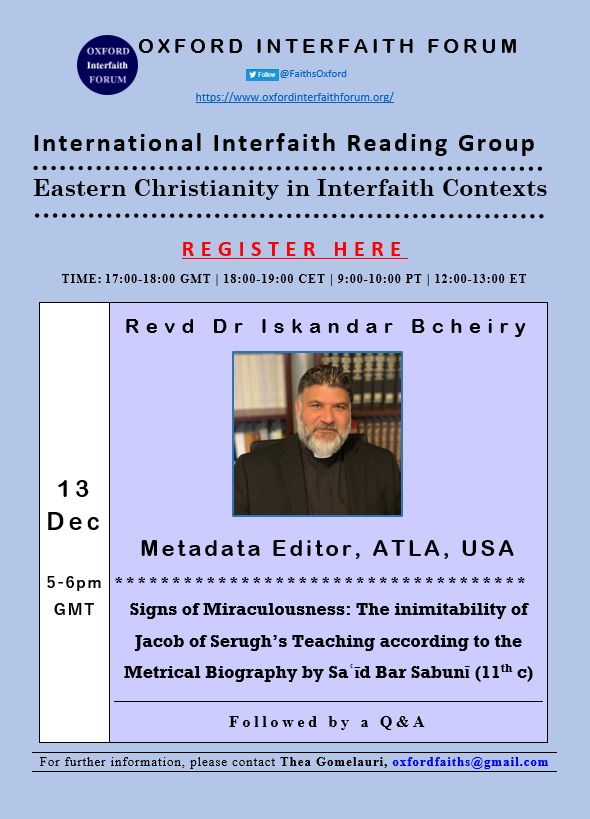
- Epistolary Style in Coptic Letters from the Late Third Century to the Early Fifth Century
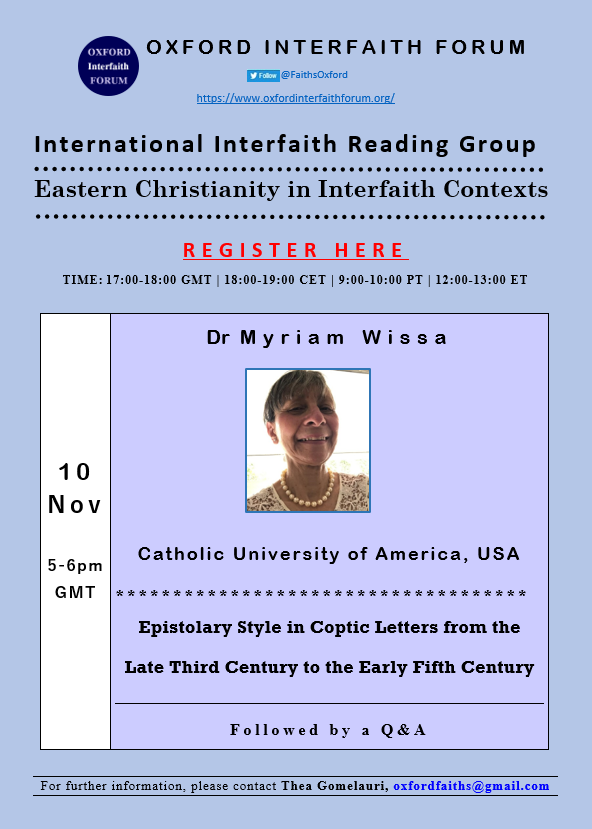
- Sarah and the Akedah: a Syriac Narrative Poem on Genesis 22
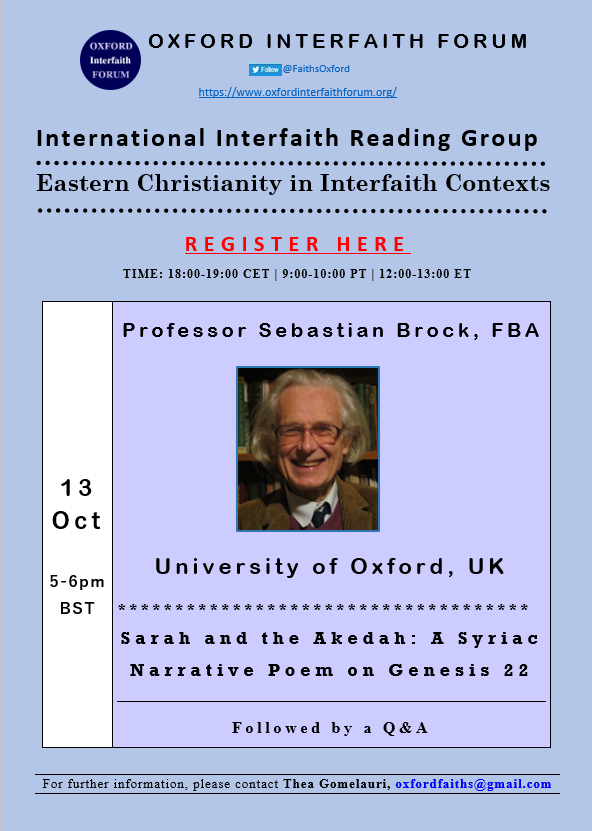
- The Paterik of the Kyivan Caves Monastery: Monk Polikarp in Discourse 14
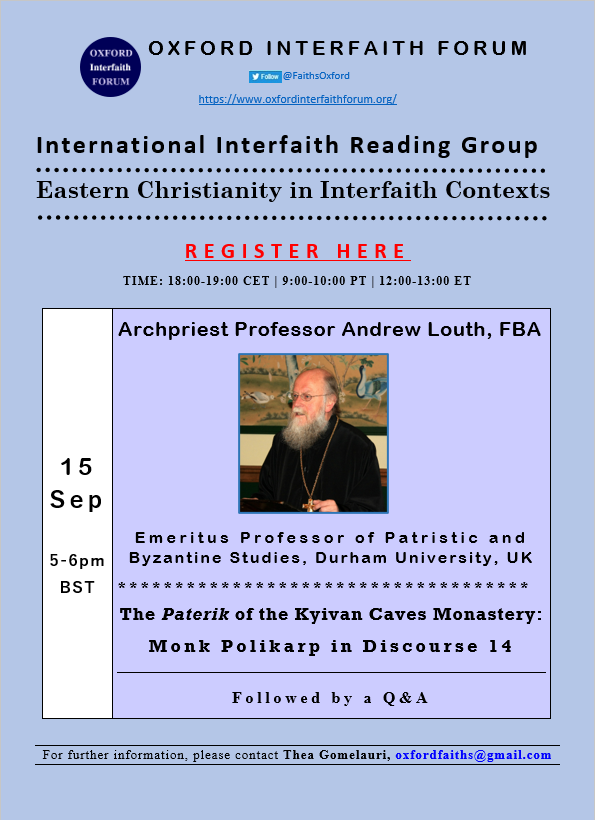
- Jacob of Sarug on the Canaanite Woman (Mt 15:21-28, Mk 7:24-30): Biblical Storytelling and Models of Faith
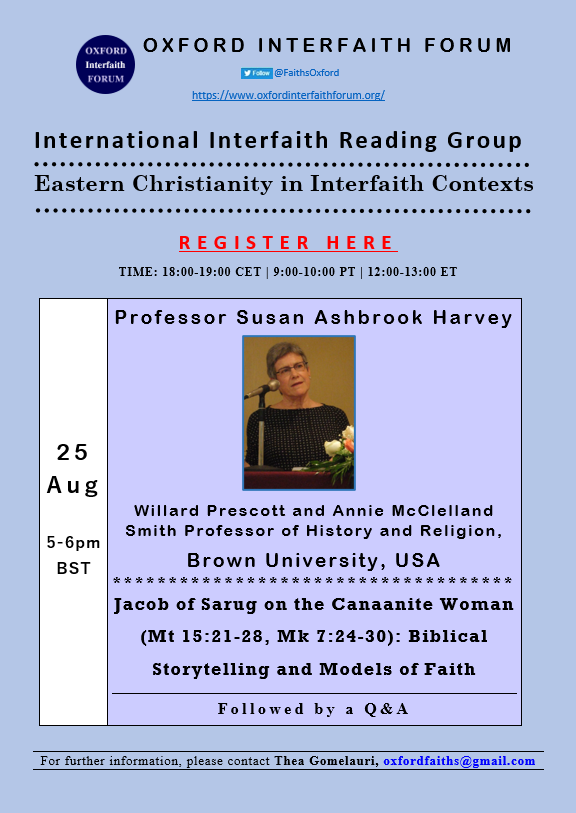
- Commemorating the saints at Turfan: Mart Shir and Mar Barshabba
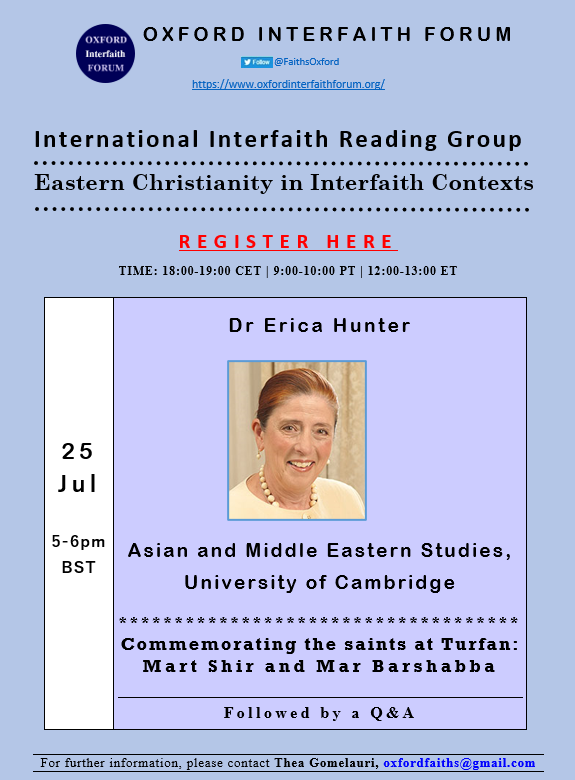
- The Opening Prayers of Saint Gregory of Narek’s Book of Lamentations
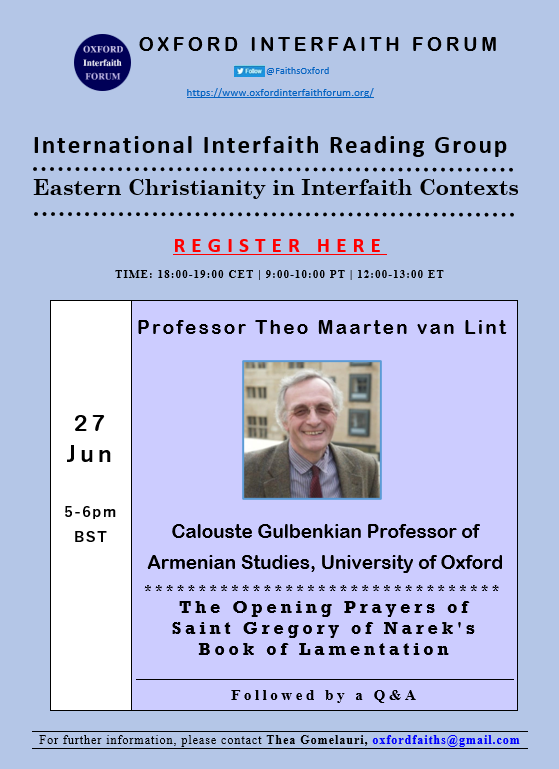
- Alexander Schmemann on Theotokos vis-à-vis Kali a Hindu Mother Goddess
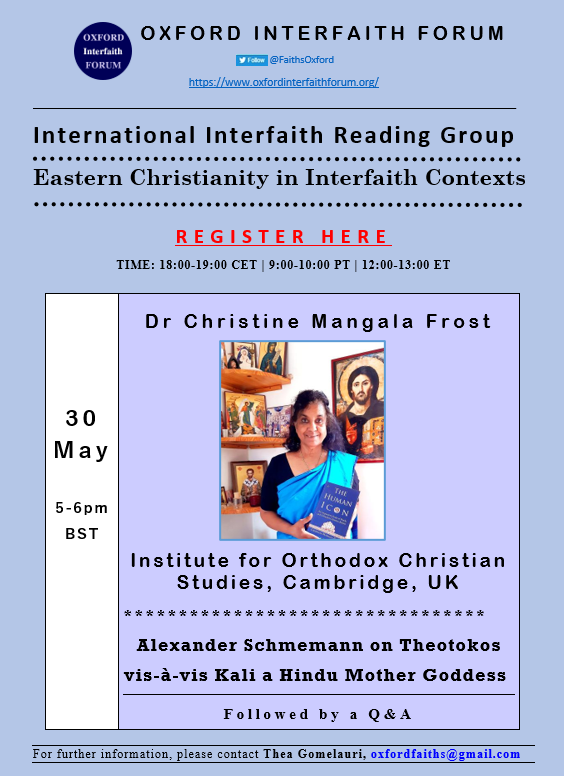
- Enoch and the Fallen Angels in the Ethiopian Tradition
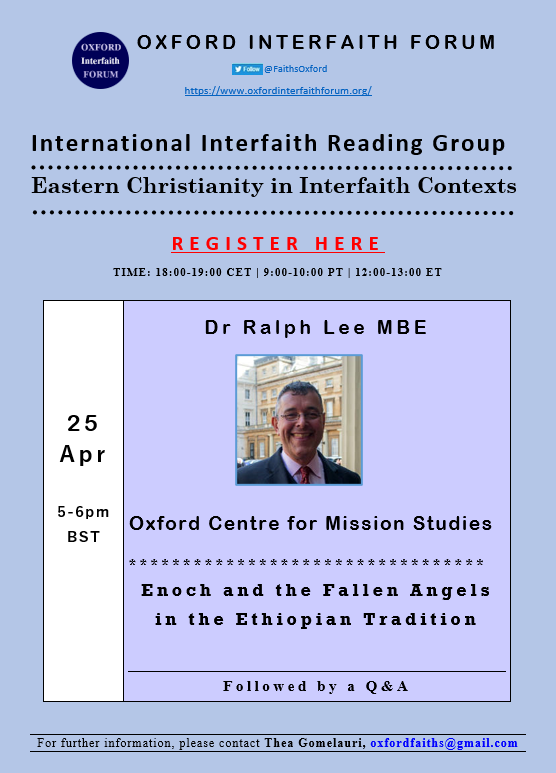
- Narsai on the Virgin Mary
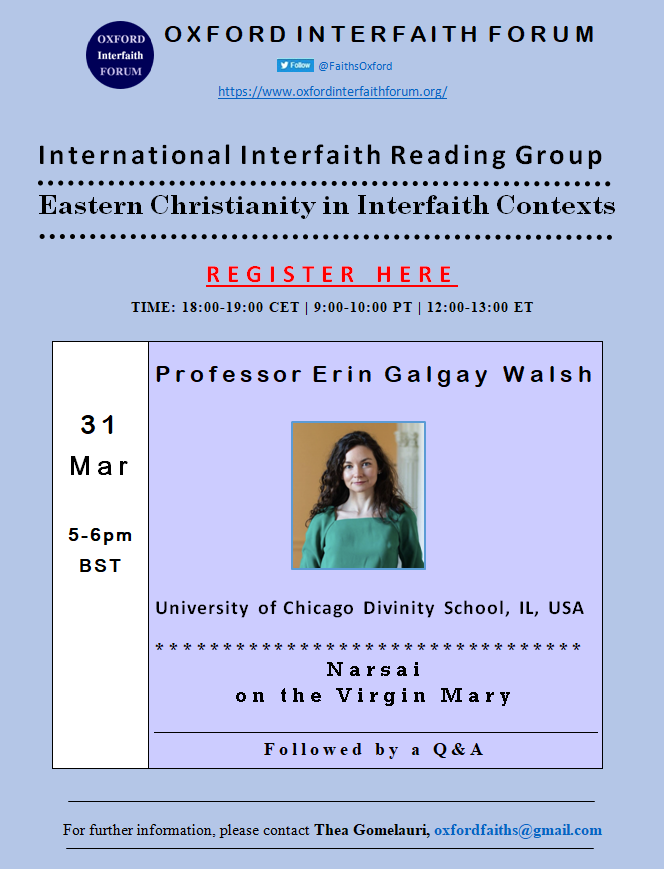
- An Anonymous Syriac Dialogue between Mary and the Angel
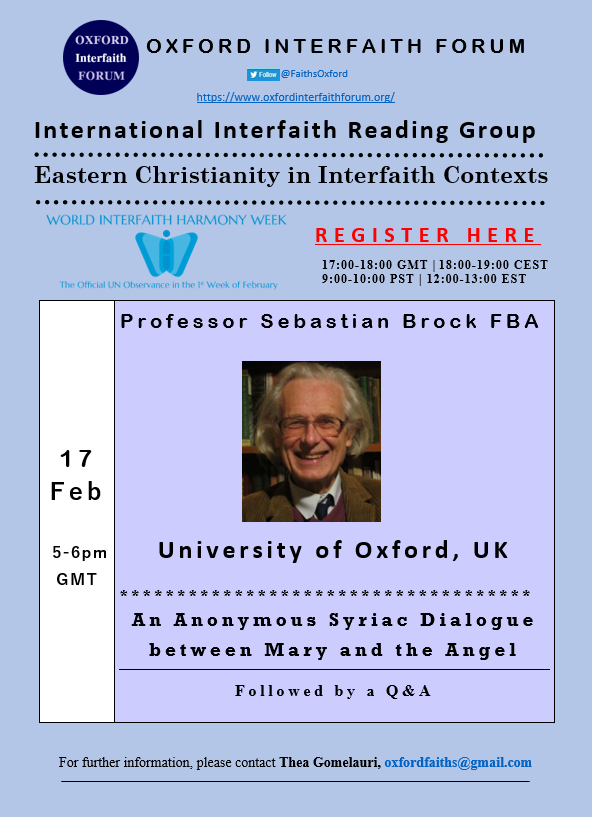
- Dadisho of Qatar: Questioning the Desert Fathers

- George the Athonite on Matters of Faith and Rite, According to the Life of St George the Hagiorite
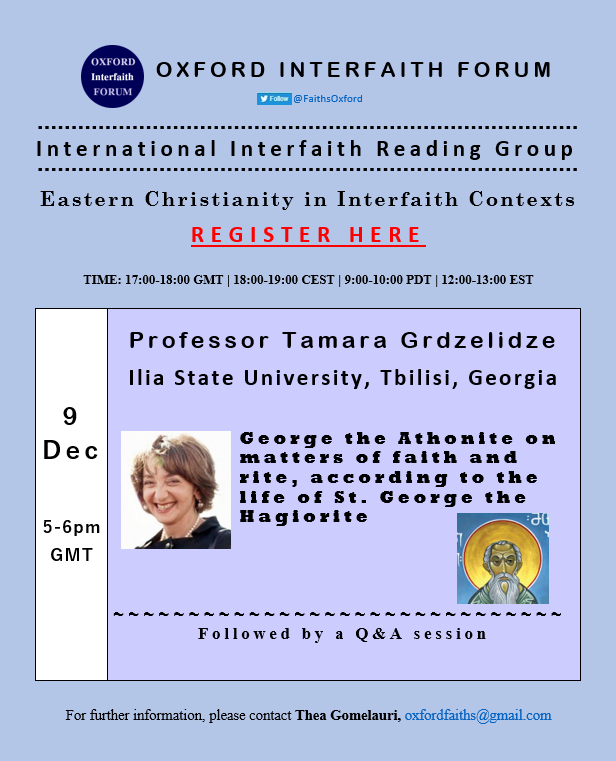
- Temple, Shekhinah and Prayer in Isaac of Nineveh’s III.VIII
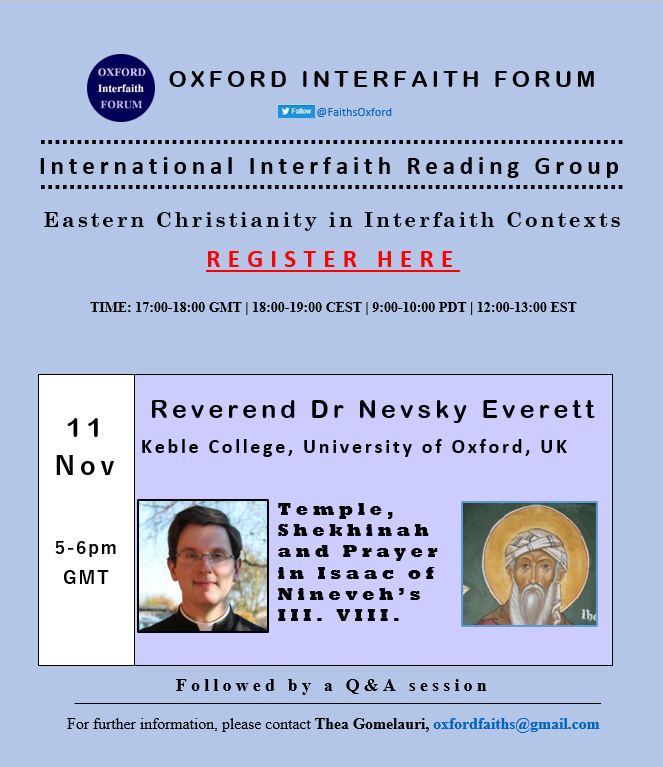
- St. Ephrem’s Commentary on Genesis Ch.3
